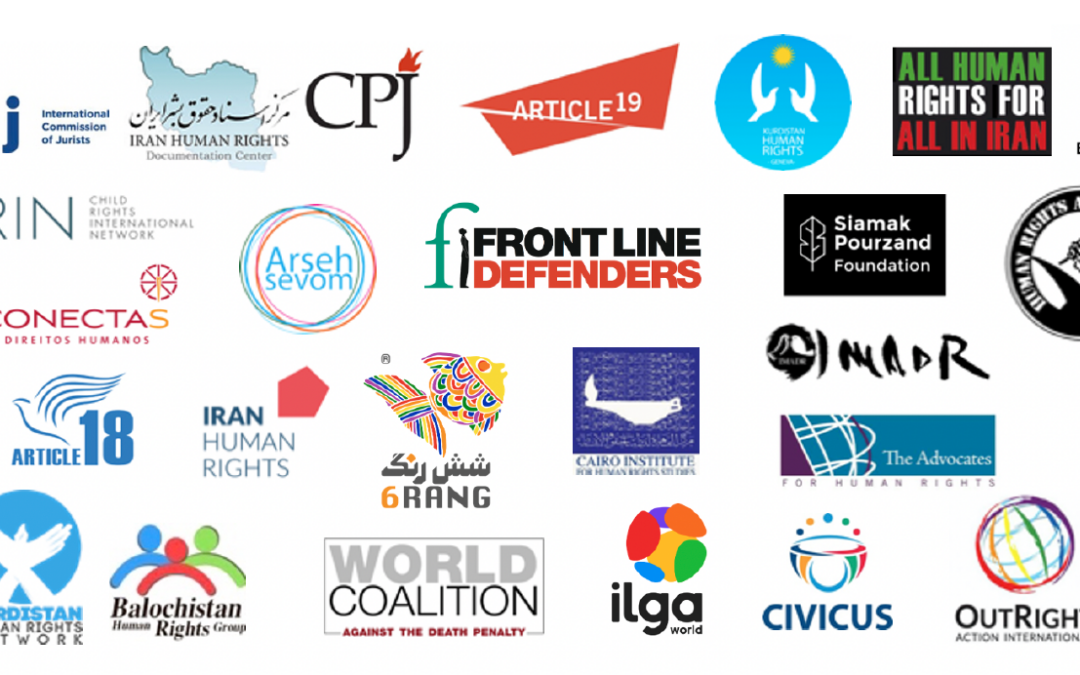
Mar 12, 2021 | Advocacy, News
Several Iranian and international human rights organisations urge member states of the United Nations Human Rights Council to support the renewal of the mandate of the United Nations Special Rapporteur on the situation of human rights in Iran.
The letter reads:
We, the undersigned Iranian and international human rights organisations, call on your government to support the renewal of the mandate of the United Nations Special Rapporteur on the situation of human rights in Iran at the 46th session of the Human Rights Council. We also urge your government to use this opportunity to voice concern at the grave and systematic violations of human rights reported by the Special Rapporteur, and to call on Iranian authorities to put an end to the endemic impunity that surrounds these violations.
The renewal of this mandate is essential in light of the persistence of widespread and systematic violations of human rights committed by Iranian authorities with total impunity.
Iran remains second only to China in the number of executions carried out each year. In 2020, the authorities executed more than 240 people, including for drug offences and other acts that do not amount to the ‘most serious crimes’ under international law. Several people were executed in secret without prior notice to their families and lawyers. Among those executed was dissident and journalist Ruhollah Zam who was sentenced to death in connection with his anti-establishment social media news channel. Several protesters were sentenced to death and dozens of others faced capital crimes in relation to the nationwide November 2019 protests. The Iranian authorities executed at least three juvenile offenders in 2020, in violation of international law and despite repeated calls from UN bodies and member states for Iran to cease this unlawful practice and high-level bilateral engagement with the Office of the High Commissioner for Human Rights on this issue.
Fair trial rights continue to be systematically violated, making the hundreds of death sentences, corporal punishment sentences and long prison terms issued all the more egregious. The UN Working Group on Arbitrary Detention has raised alarm at ‘a familiar pattern of arrest and detention that does not comply with international norms’, including ‘lengthy detention pending trial with no access to judicial review; denial of access to legal counsel; incommunicado detention and solitary confinement; prosecution under vaguely worded criminal offences for the peaceful exercise of human rights; a closed trial and appeal by courts lacking in independence; disproportionately harsh sentencing; torture and ill-treatment; and denial of medical care’. In addition to these concerns, courts consistency rely on forced ‘confessions’ extracted under torture and other ill-treatment to issue convictions, as in the recent case of Navid Afkari, executed on 12 September 2020.
The Iranian authorities continue to routinely arbitrarily arrest, detain and sentence individuals to prison terms and flogging for the exercise of their rights to freedom of expression, association and peaceful assembly. Among those who are targeted are protesters, media workers, journalists, political dissidents, artists, writers, and human rights defenders, including lawyers, women’s rights defenders, labour rights activists, minority rights activists, conservationists, anti-death penalty campaigners and
those demanding truth, justice and reparation for the mass extrajudicial executions of the 1980s.
Authorities in Iran have further quashed civic space through state policies and the recent introduction of new provisions in the Islamic Penal Code, which further criminalise the exercise of the rights to freedom of expression, religion or belief. Violent crackdowns on protests have become intertwined with the imposition of internet shutdowns or disruptions in recent years. These measures stifle internet freedom and have been used by the authorities to prevent protesters from mobilising and to conceal the scale of grave human rights violations and international crimes carried out by the state and its security forces.
Conditions in many prisons and detention facilities are cruel and inhuman, with prisoners suffering from overcrowding, bad ventilation, lack of adequate food, poor hygiene and sanitation and inadequate access to toilet and washing facilities. Despite such conditions providing a breeding ground for infectious diseases, authorities have failed to adequately resource prisons to control the spread of COVID-19 and treat infected prisoners. They have excluded prisoners of conscience and others held for politically motivated reasons from temporary releases or pardons announced to mitigate the spread of COVID-19 and have deliberately denied them access to adequate health care.
As highlighted in the report of the Special Rapporteur before the Human Rights Council, discrimination in law and practice remains pervasive and a daily reality for women and girls, for persons belonging to ethnic, religious or linguistic minorities, as well as for lesbian, gay, bisexual and transgender (LGBT) individuals. Women and girls continue to face widespread and systematic discrimination in law and practice in all aspects of their lives, amid the authorities’ continued failure to protect them from gender-based violence.
Ethnic minorities, including Ahwazi Arabs, Azerbaijani Turks, Baluchis, Kurds and Turkmen continue to face entrenched discrimination, which curtails their economic, social, cultural and other rights. The High Commissioner has recently noted that ‘an apparently coordinated campaign has been targeting minority groups since December, including in Sistan and Balochistan; Khuzestan; and in the Kurdish provinces. Mass arrests and enforced disappearances have been reported, as well as increasing
numbers of executions, following deeply flawed processes’. Some ethnic minorities have also been disproportionately affected by the imposition of the death penalty in 2020.
Freedom of religion or belief continues to be systematically violated, including for Baha’is who face widespread and systematic persecution, hate speech and obstacles to access education and work. Christian converts, the Yarsan (Ahl-e Haq), Sunni Muslims and non-believers also face discrimination and persecution for expressing or practising their faith or beliefs.
These long-standing patters of human rights violations have been facilitated by systematic impunity and lack of transparency. An illustration of this crisis of impunity is the continued failure of the authorities to investigate and prosecute crimes and human rights violations committed in the context of the violent repression of the nationwide protests of November 2019. The state repression resulted in the unlawful killing of hundreds of men, women and children, the arrest of at least 7,000 others, and widespread patterns of enforced disappearances and torture and other ill-treatment of detainees to obtain ‘confessions’ that have been used to issue convictions in unfair trials. In his report before the Human Rights Council, the UN Special Rapporteur has expressed dismay that ‘more than one year on, the Government has failed to conduct an impartial, independent and transparent investigation into the use of excessive and lethal force during nationwide demonstrations in November 2019’. On the contrary, the authorities have engaged in harassment and violence against victims and their families for seeking truth, justice and reparation, as documented in the recent reports of the Special Rapporteur.
In this context, the mandate of the Special Rapporteur on the situation of human rights in Iran continues to be critical to monitor, document and report to this Council on steps taken by Iran to uphold its human rights obligations or of its failure to take such measures. It is essential to engage with Iranian authorities on issues of concern, and to make potentially life-saving urgent appeals and other communications. The mandate draws the attention of this Council to the voices of victims, and its expert findings and recommendations steer and inform the efforts of UN bodies and member states to encourage Iran’s authorities to undertake long overdue human rights reforms and hold them to account for human rights violations.
For these reasons, we urge your government to support the renewal of the mandate of the UN Special Rapporteur on the situation of human rights in Iran at this session and to press Iran to give unfettered access to the Special Rapporteur. We also call on your government to voice concern at the dire situation of human rights in Iran, and to send a strong message to the Iranian authorities that the cycle of impunity must be broken, and that members of the Council expect without delay the adoption of long-overdue
human rights reforms and tangible improvements to the human rights situation in the country.
Download
Joint letter with a list of organizations in English.
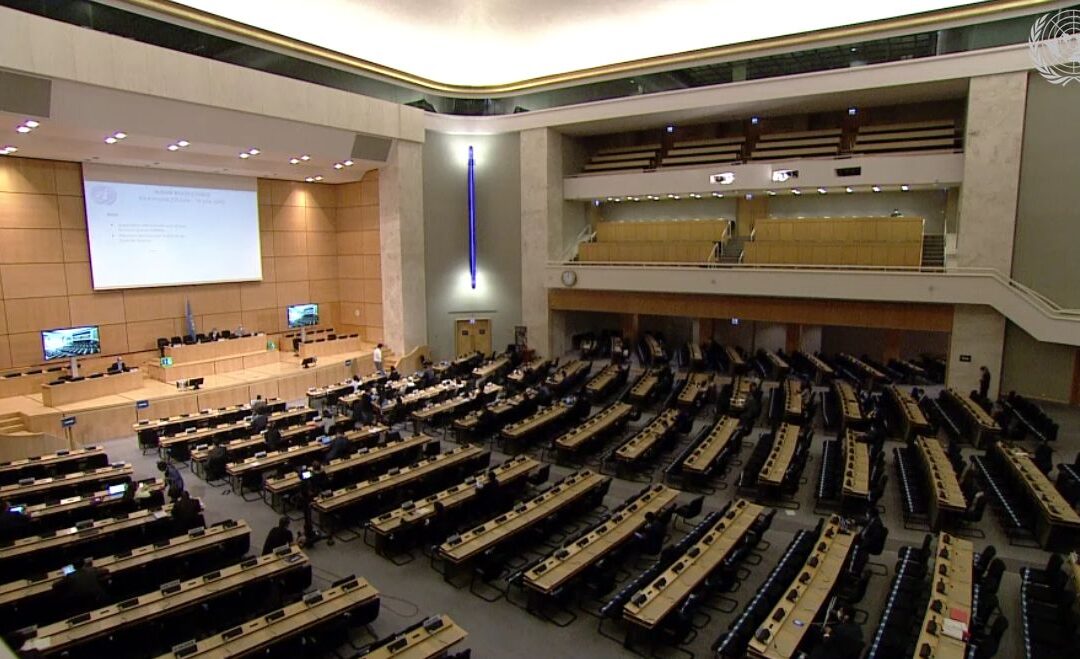
Mar 9, 2021 | Advocacy, Non-legal submissions
Today, the ICJ joined an oral statement at the UN Human Rights Council denouncing attacks on lawyers occurring in Iran.
The statement was delivered by IBAHRI on behalf also of ICJ, Lawyers for Lawyers, Lawyers’ Rights Watch Canada and The Law Society, during the interactive dialogue with the UN Special Rapporteur on the ISlamic Republic of Iran.
The statement reads as follows:
“The International Bar Association’s Human Rights Institute (the IBAHRI), the International Commission of Jurists (the ICJ), Lawyers for Lawyers, Lawyers’ Rights Watch Canada, and The Law Society express deep concerns at the arbitrary arrests and detention of lawyers and others sentenced to exorbitant prison terms for legitimately carrying out their professional activities. We draw special attention to the cases of lawyers Nasrin Sotoudeh and Amirsalar Davoodi, who remain imprisoned and were excluded from Covid-19 prisoner release programmes.
Their imprisonment means that access to justice for citizens in Iran is restricted. We are alarmed by the widespread violation of fair trial guarantees, including the denial of access to a lawyer of one’s own choosing, as well as the recent application of the death penalty in Iran. We also condemn Iran’s non-compliance with international standards on conditions of detention and reports of torture of those critical of the regime.
We urge the Iranian authorities to:
- Immediately and unconditionally release Nasrin Sotoudeh, Amirsalar Davoodi and other lawyers who remain in prison after conviction in an unfair trial;
- Pending release, ensure compliance with international standards on conditions of detention;
- Ensure that lawyers and others can carry out their profession free from undue interference, including judicial harassment;
- Establish an immediate moratorium on the death penalty, pending abolishment; and
- Comply with its international legal obligations in respecting, guaranteeing, and protecting human rights.”
Find the statement here: Iran-UN-JointStatement-Lawyers-Advocacy-NonLegal-HRC46-2021-ENG
Contact:
Massimo Frigo, ICJ UN Representative, e: massimo.frigo(a)icj.org, t: +41797499949
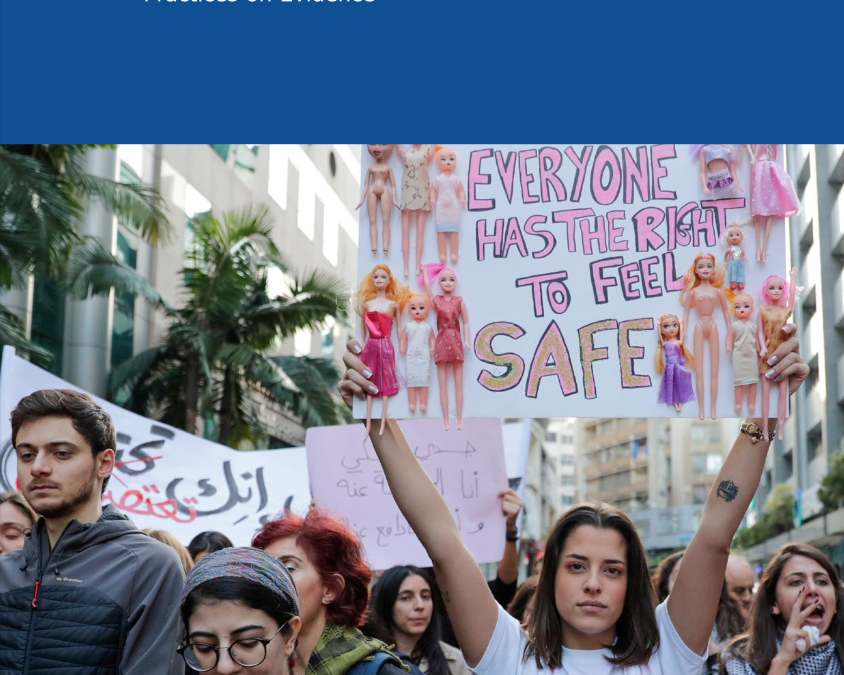
Feb 18, 2021 | Advocacy, News, Publications
In a memorandum released today, the ICJ published guidance and recommendations aimed at assisting Lebanon’s criminal justice actors in addressing significant gaps in evidentiary rules, practice and procedures undermining the investigation, prosecution and adjudication of sexual and gender-based violence (SGBV) crimes in the country.
The 42-page memorandum, Sexual and Gender-based Violence Offences in Lebanon: Principles and Recommended Practices on Evidence (available in English and Arabic), aims to advance accountability and justice for SGBV, and is especially designed for investigators, prosecutors, judges and forensic practitioners.
“Criminal justice actors are indispensable to eradicating harmful practices and curbing entrenched impunity for SGBV in Lebanon,” said Said Benarbia, Director of the ICJ’s Middle East and North Africa Programme.
“Rather than buying into false, stereotyped narratives that impugn survivors’ credibility and call into question their sexual history, the criminal justice system must adopt and enforce gender-sensitive, victim-centric evidence-gathering procedures that put the well-being of SGBV survivors at the forefront.”
The memorandum provides criminal justice actors with guidance and recommendations on the identification, gathering, storing, admissibility, exclusion and evaluation of evidence in SGBV cases, as well as on their immediate applicability in practice, pending consolidation and reform of Lebanon’s existing legal framework and procedures for the investigation, prosecution and adjudication of SGBV offences.
“Lebanon’s legal framework fosters and perpetuates a systematic denial of effective legal protection and access to justice for women survivors of SGBV,” said Benarbia. “The justice system must counter harmful gender stereotypes and attitudes rooted in patriarchy, which continue to undermine survivors’ right to effective remedies.”
The memorandum’s release is particularly timely given the escalation of SGBV witnessed since the outbreak of the COVID-19 pandemic.
The memorandum builds on previous research undertaken by the ICJ in this area, including Gender-based violence in Lebanon: Inadequate Framework, Ineffective Remedies and Accountability for Sexual and Gender-based Violence in Lebanon: Guidance and Recommendations for Criminal Justice Actors.
Download
Lebanon-GBV-Memorandum-2021-ENG (Memorandum in English)
Lebanon-GBV-Memorandum-2021-ARA (Memorandum in Arabic)
Lebanon-GBV-Web-Story-2021-ARA (Web story in Arabic)
Lebanon-GBV-Web-Story-2021-ENG (Web story in English)
Contact:
Said Benarbia, Director, ICJ Middle East and North Africa Programme, t: +41-22-979-3817; e: said.benarbia(a)icj.org
Asser Khattab, Research and Communications’ Officer, ICJ Middle East and North Africa Programme, e: asser.khattab(a)icj.org
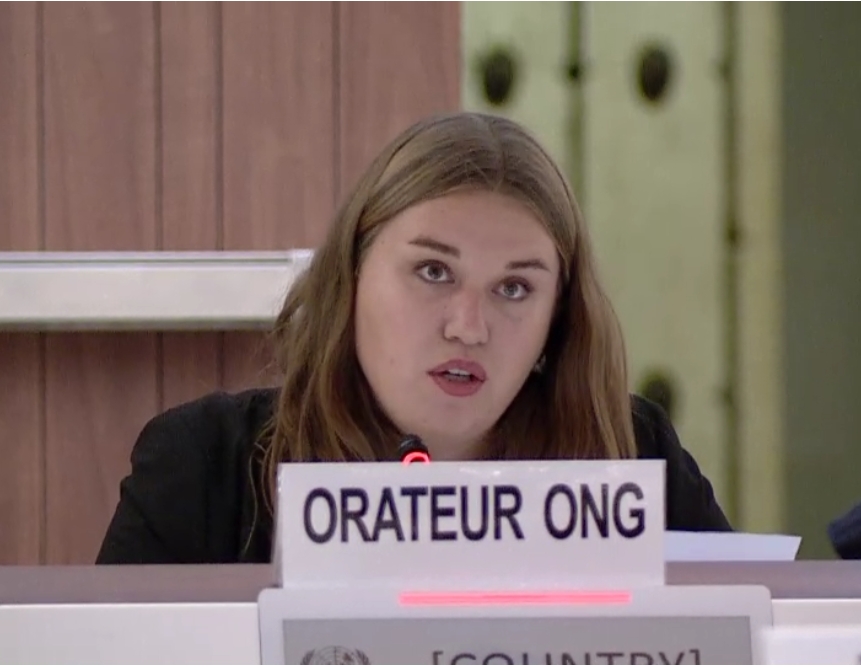
Oct 5, 2020 | Advocacy, Non-legal submissions
The ICJ today highlighted the need for accountability for crimes under international law in Libya, and concerns for the independence of lawyers in Ukraine, at the UN Human Rights Council in Geneva.
The oral statement, delivered in the general debate on technical cooperation and capacity building, read as follows:
“Madame President,
The International Commission of Jurists (ICJ) welcomes the oral updates on Ukraine and Libya.
Technical assistance and capacity building objectives in Libya can only be achieved if the protection of human rights, entrenchment of the rule of law and pursuit of accountability are prioritized.
States should support the Fact-Finding Mission by extending its reporting mandate, increasing contributions to the UN budget necessary to establish the Mission’s secretariat, and fully cooperating with it.
States should also support the Berlin Process working groups, ensuring that the political and accountability pillars work in unison and making meaningful commitments to implement their recommendations.
Across all of Ukraine, lawyers continue to be associated with their clients and may face consequences for representing them by private individuals and also through abuse of legal proceedings. High-profile cases bear risks for independent lawyers who choose to diligently represent their clients.
The decline in security of lawyers in and outside of courts, and the problem of threats, harassment, and attacks against lawyers, should be addressed as a matter of priority, including through technical cooperation. Measures should be taken to build the capacity of law enforcement agencies and court security personnel to ensure that lawyers and others involved in court proceedings can work in an atmosphere free from intimidation, harassment, and improper interference.
Thank you.”
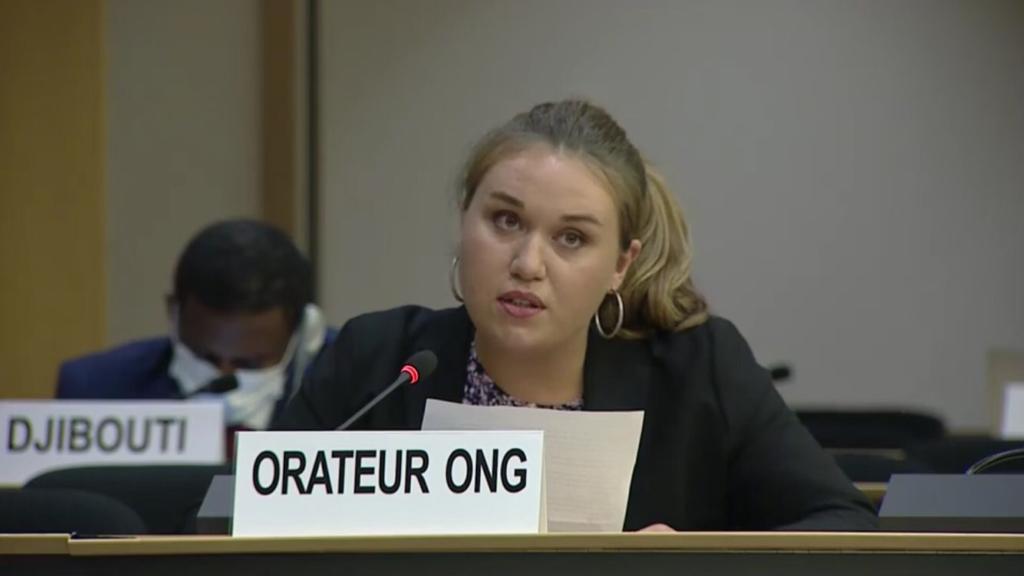
Sep 29, 2020 | Advocacy, Non-legal submissions
At the Human Rights Council, the ICJ today highlighted the problem of abuse of counter-terrorism laws to perpetrate reprisals against those who cooperate with the UN, including particularly by Egypt.
The oral statement was delivered in a general debate on human rights bodies and mechanisms (item 5), and read as follows:
“Madame President,
The International Commission of Jurists (ICJ) welcomes the report of the Secretary General on Cooperation with the United Nations, its representatives and mechanisms in the field of human rights (A/HRC/45/36). The ICJ particularly concurs with its conclusion that reprisals perpetrated through abuse of national security and counter-terrorism laws and measures continue at alarming levels (para 131), and that such abuse also frequently occurs in the context of broader repressive environments for civil society or dissent (para 132).
While the report documents such abuses in a number of countries, the pattern of abuse of such laws by the government of Egypt presented in the report should be of particular concern to this Council (paras 65 to 70, Annex I paras 40 to 51, Annex II paras 44 to 53).[1] Further relevant cases from Egypt continue, including shortly before this session began.
These reprisals resonate with broader patterns of abuse of counter-terrorism and national security laws in Egypt, including for instance targeting lawyers, which are also severely exacerbated by the lack of independence of the judiciary in Egypt, particularly in the special terrorism court circuits.
Madame President, these patterns of abuse only further illustrate and underscore civil society’s concern with the role Egypt seeks for itself on issues of terrorism and human rights at the Council. In that regard, we reiterate our concerns about the pending report of the Advisory Committee, responding to the request it received under the last Egypt-led separate resolution on “the effects of terrorism” (resolution 34/8) to report on “the negative effects of terrorism on the enjoyment of all human rights and fundamental freedoms, with a particular focus on economic, social and cultural rights, including as a result of diverting foreign direct investment, reducing capital inflows, destroying infrastructure, limiting foreign trade, disturbing financial markets, negatively affecting certain economic sectors and impeding economic growth.”
The Human Rights Council should not, Madame President, countenance such attempts to divert and dilute its limited resources and attention away from the most acute issues on this theme from a human rights perspective: preventing and responding to violations in countering terrorism and a human-rights based approach to victims of terrorism.”
[1] Underlying documents in a number of cases mentioned in A/HRC/45/36 reveal further links to abuses of counter-terrorism and national security laws: see e.g. A/HRC/39/31 para 38 and Annex I paras 32-35; A/HRC/27/38, para 24; A/HRC/36/31 para 33 and Annex I, para 34; and A/HRC/39/31 Annex II, paras 17-18, 21.
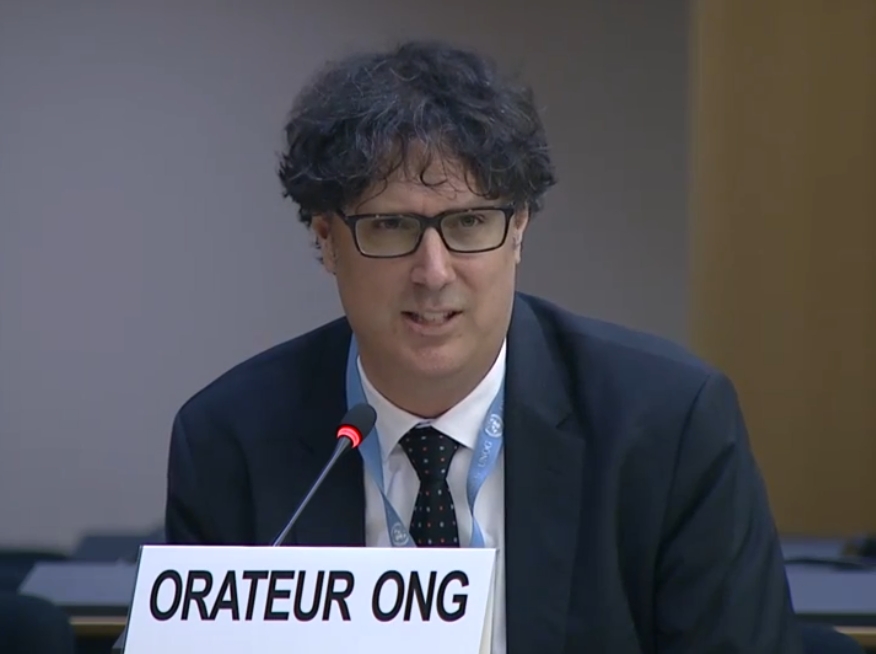
Sep 25, 2020 | Advocacy, Non-legal submissions
Today at the UN Human Rights Council, the ICJ together with the Tahrir Institute for Middle East Policy, drew attention to ongoing attacks on the independence and role of lawyers in Egypt.
The ICJ made the oral statement during the general debate on country situations of concern, speaking on behalf also of the Tahrir Institute for Middle East Policy. The statement read as follows:
“The International Commission of Jurists (ICJ) and the Tahrir Institute for Middle East Policy draw the Council’s attention to the continuing deterioration of the situation for human rights and the rule of law in Egypt.
Today our organizations published a new report, Targeting the Last Line of Defense: Egypt’s Attacks against Lawyers, to be followed by a virtual side event on 30 September.
As the last line of defense against the government’s sustained and broad crackdown on human rights and fundamental freedoms, Egypt’s lawyers have been increasingly and systematically targeted by authorities. Since 2018, at least 35 lawyers have been arrested and arbitrarily detained for their legal defense work and exercise of fundamental freedoms.
Lawyers have been subject to arbitrary arrest and detention, physical assault, torture and other ill-treatment, and enforced disappearances, as well as unfounded and politicized criminal proceedings based on charges under grossly overbroad criminal laws on “terrorism,” “spreading false news,” and “misusing social media.” Arrests of lawyers spiked in the wake of the September 2019 protests. Arrests continue despite the risk of a COVID-19 outbreak in detention facilities.
The ICJ and Tahrir Institute call on Egyptian authorities to end these violations of the rights and role of lawyers, to take measures to protect the independence of the Bar Association, and to amend all relevant legal frameworks in line with Egypt’s constitution and international human rights law and standards.
Thank you.”
The full statement can be downloaded (PDF) here: UN-Advocacy-Egypt-HRC45-2020
For more information, contact: un@icj.org










